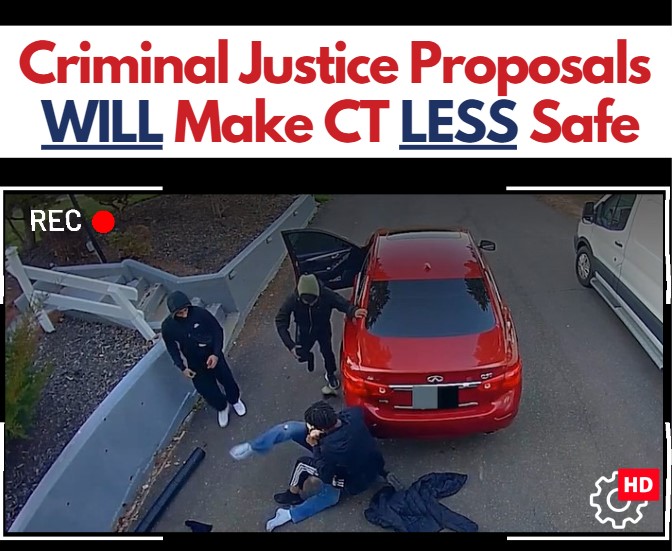Legislative Proposals Offer Less Accountability

Posted on May 1, 2023
Just last Tuesday in broad daylight, a Rocky Hill resident halted an attempted carjacking in his driveway. There were 16 reported break-ins in Wethersfield over one recent weekend, a juvenile was arrested for a string of purse thefts in Wallingford, as towns like Southington, Rocky Hill, and South Windsor grapple with a string of smash and grabs. These are just a few examples to the types of crimes happening in communities across our state.
Due to a serious lack of accountability, the individuals who commit these crimes are emboldened to do so without fear of punishment. This brazen behavior has spiraled out of control.
The frequency in which cars are stolen, broken into, or residents are subjected to some type of crime should be hard to ignore, yet despite news stories highlighting an all too familiar trend, many proposals made this session by my colleagues on the other side of the aisle continue the focus less on accountability and more on absolving personal responsibility.
Some of those proposals include:
SB-952, AN ACT CONCERNING PAROLE ELIGIBILITY FOR AN INDIVIDUAL SERVING A LENGTHY SENTENCE FOR A CRIME COMMITTED BEFORE THE INDIVIDUAL REACHED THE AGE OF TWENTY-FIVE
This proposal would permit individuals who committed a crime before the age of 24 and received a sentence greater than 10 years to be available for parole by increasing the current threshold from 18 to 25.
The Chief States Attorney submitted testimony in opposition to this bill. In his testimony he states, ” Increasing the age of eligible offenders to include non-adolescents up to the age of twenty-five at the time the offense was committed, is neither constitutionally required, nor apparently based on any credible and compelling scientific or psychological evidence.”
S.B. 1195: AN ACT ESTABLISHING SECONDARY TRAFFIC VIOLATIONS
This bill proposal creates a new classification of motor vehicle infractions called “secondary violations” and prohibits law enforcement officers from stopping drivers for any infraction related to this new classification. Secondary violations include faulty headlights/taillights, license plate and seatbelt infractions, tinted windows, expired registrations and more.
The Police Chiefs Association submitted testimony in opposition to this bill. In their testimony, they state “we are concerned that the establishment of a tiered primary and secondary offense system and the removal of certain motor vehicle equipment violations will make our roads less safe.”
S.B. 1233: AN ACT ESTABLISHING COMMUNITY-BASED SENTENCING ALTERNATIVES FOR PRIMARY CARETAKERS OF DEPENDENT CHILDREN AND OTHER ELIGIBLE CARETAKERS
This proposal would require the Judicial branch to establish a community-based sentencing alternative to incarceration for an individual who is a primary caretaker of a child, who is pregnant, or who is the spouse of a primary caretaker of a child.
The Chief States Attorney and State Victim Advocate each submitted testimony in opposition to this bill.
The legislature needs to reprioritize public safety and provide residents with a criminal justice system that holds individuals accountable. Ignoring the problem isn’t acceptable.
A good start to curbing the theft of catalytic converters is HB-6796, AN ACT CONCERNING INTERSTATE AGREEMENTS TO COMBAT CATALYTIC CONVERTER THEFTS AND A TASK FORCE TO STUDY THE LAWS RELATED TO CATALYTIC CONVERTERS
This proposal would build upon the work the legislature did last session in this area by requiring DMV and Dept. of Emergency Services and Public Protection (DESPP) to seek to enter into agreements with the proper authorities of other states to develop a regional approach to combating the theft of catalytic converters and creates a task force to study the laws relating to catalytic converters.